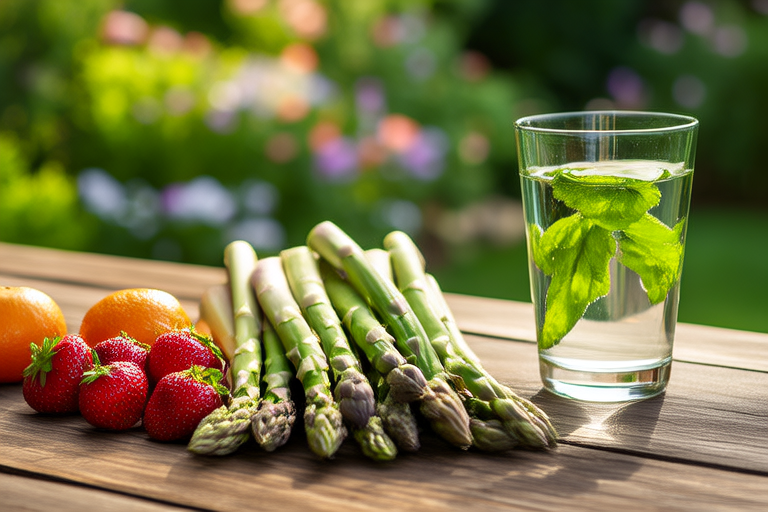Stay Healthy with the Seasons: A Guide to Health Preservation in Spring, Summer, Autumn, and Winter
The changing seasons bring about shifts in temperature, humidity, and daylight, all of which can have significant impacts on our health. Adapting our health routines to these seasonal changes is crucial for maintaining optimal physical and mental well-being throughout the year. This guide offers tailored advice for each season, covering diet, exercise, sleep, mental well-being, and preventive measures against common health issues.
Spring: A Time for Renewal
Spring brings longer days and warmer weather, signaling the end of winter’s dormancy. It’s an ideal time to shed old habits and embrace new ones that promote vitality and energy. Here are some tips for staying healthy during this transitional period:
Diet
Incorporate fresh, seasonal produce into your meals to take advantage of nature’s bounty. Leafy greens like spinach and kale, asparagus, and berries are excellent choices. They provide essential vitamins and minerals that support immune function and detoxification. Additionally, focus on foods rich in omega-3 fatty acids, such as salmon and flaxseeds, to combat inflammation.
Exercise
Spring is perfect for outdoor activities like walking, jogging, or cycling. Start slowly if you haven’t been active during the winter months. Gradually increase the intensity and duration of your workouts as your body adapts. Incorporate yoga or Pilates to improve flexibility and balance.
Sleep
As daylight hours increase, it’s important to maintain a consistent sleep schedule. Aim for 7-9 hours of quality sleep per night. Create a relaxing bedtime routine to signal to your brain that it’s time to wind down. Avoid screens at least an hour before bed and keep your bedroom cool and dark.
Mental Well-being
Spring can be a time of renewed optimism and hope. However, it’s also when allergies and hay fever become more prevalent. Practice mindfulness techniques, such as meditation or deep breathing exercises, to manage stress and anxiety. Connect with nature by spending time outdoors, which can boost mood and reduce symptoms of depression.
Preventive Measures
To avoid catching a cold or flu, wash your hands frequently and avoid touching your face. Stay hydrated by drinking plenty of water and herbal teas. Consider taking vitamin D supplements if you’re not getting enough sunlight.
Summer: Embrace the Sun
Summer is characterized by hot temperatures and long daylight hours. While it’s a great time to enjoy outdoor activities, it’s important to take precautions to stay safe and healthy. Here are some tips for thriving in the summer heat:
Diet
Eat light, hydrating meals that are easy to digest. Focus on fruits and vegetables with high water content, such as cucumbers, watermelon, and strawberries. Limit processed foods and sugary snacks, which can dehydrate you. Stay hydrated by drinking water throughout the day.
Exercise
Take advantage of the warm weather by engaging in outdoor activities like swimming, hiking, or playing sports. Exercise in the early morning or late evening to avoid the midday heat. Wear sunscreen and protective clothing to prevent sunburn.
Sleep
With longer days and more social activities, it can be challenging to maintain a regular sleep schedule. Establish a bedtime routine and stick to it, even on weekends. Create a cool, comfortable sleeping environment by using fans or air conditioning.
Mental Well-being
Summer is a time for relaxation and enjoyment. However, it can also lead to feelings of isolation or loneliness. Stay connected with friends and family through regular check-ins or gatherings. Practice gratitude by focusing on the positive aspects of your life.
Preventive Measures
Avoid heat-related illnesses by staying hydrated and avoiding excessive exposure to direct sunlight. Wear lightweight, breathable clothing and seek shade when possible. Apply broad-spectrum sunscreen with at least SPF 30 every two hours.
Autumn: Prepare for Cooler Weather
Autumn brings cooler temperatures and shorter days, signaling the approach of winter. It’s a time to prepare your body for the upcoming season by boosting your immune system and adjusting your lifestyle accordingly. Here are some tips for staying healthy during this transitional period:
Diet
Incorporate warming foods into your diet, such as soups, stews, and roasted vegetables. Focus on nutrient-dense foods like sweet potatoes, squash, and pumpkin seeds. These foods provide essential vitamins and minerals that support immune function and digestion.
Exercise
Continue to engage in regular physical activity, but adapt your routine to the cooler weather. Try indoor activities like yoga, Pilates, or group fitness classes. Outdoor activities like hiking or cycling are still enjoyable, but be mindful of the weather conditions.
Sleep
As the days get shorter, it’s important to maintain a consistent sleep schedule. Aim for 7-9 hours of quality sleep per night. Create a relaxing bedtime routine to signal to your brain that it’s time to wind down. Avoid screens at least an hour before bed and keep your bedroom cool and dark.
Mental Well-being
Autumn can be a time of reflection and introspection. However, it can also lead to feelings of sadness or melancholy. Practice self-care by engaging in activities that bring you joy, such as reading, journaling, or crafting. Stay connected with friends and family through regular check-ins or gatherings.
Preventive Measures
To avoid catching a cold or flu, wash your hands frequently and avoid touching your face. Stay hydrated by drinking plenty of water and herbal teas. Consider taking vitamin D supplements if you’re not getting enough sunlight.
Winter: Stay Warm and Cozy
Winter is characterized by cold temperatures and shorter days. It’s a time to prioritize warmth, comfort, and self-care. Here are some tips for staying healthy during this chilly season:
Diet
Eat warming foods like soups, stews, and roasted vegetables. Focus on nutrient-dense foods like root vegetables, whole grains, and lean proteins. These foods provide essential vitamins and minerals that support immune function and digestion.
Exercise
Continue to engage in regular physical activity, but adapt your routine to the colder weather. Try indoor activities like yoga, Pilates, or group fitness classes. Outdoor activities like skiing, snowshoeing, or ice skating are also enjoyable, but be mindful of the weather conditions.
Sleep
As the days get shorter, it’s important to maintain a consistent sleep schedule. Aim for 7-9 hours of quality sleep per night. Create a relaxing bedtime routine to signal to your brain that it’s time to wind down. Avoid screens at least an hour before bed and keep your bedroom warm and cozy.
Mental Well-being
Winter can be a time of hibernation and introspection. However, it can also lead to feelings of isolation or loneliness. Stay connected with friends and family through regular check-ins or gatherings. Practice gratitude by focusing on the positive aspects of your life.
Preventive Measures
To avoid catching a cold or flu, wash your hands frequently and avoid touching your face. Stay hydrated by drinking plenty of water and herbal teas. Consider taking vitamin D supplements if you’re not getting enough sunlight.
Conclusion: Key Points for Seasonal Health Preservation
Adapting your health routines to the changing seasons is essential for maintaining optimal physical and mental well-being throughout the year. By incorporating the tips provided in this guide, you can stay healthy and vibrant all year long. Remember to adjust your diet, exercise, sleep, and mental well-being practices according to the environmental conditions and common health concerns associated with each season. With a little effort and attention, you can enjoy the benefits of each season while staying healthy and happy.










